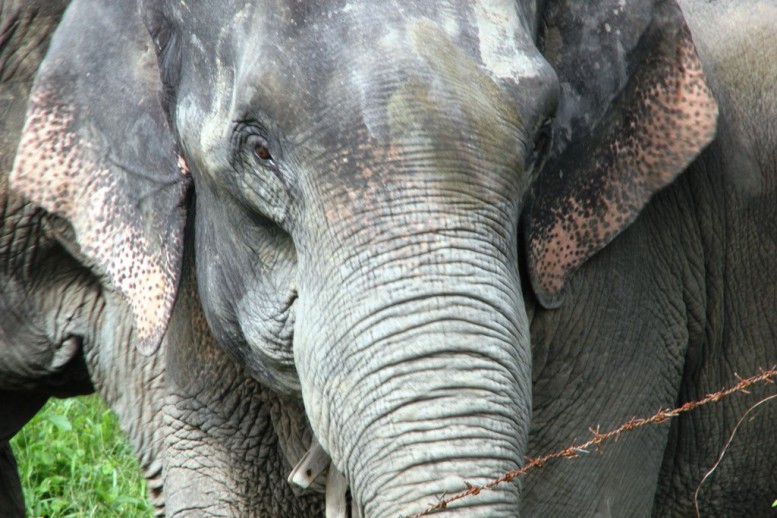The World Wildlife Fund has released a statement calling on governments in Southeast Asia to actively combat the surge in elephant skinning taking place in Burma.
Within just a few months, the number of elephant killings within the country has doubled, and this year’s elephant poaching rates have already surpassed past yearly averages. Although Burma is currently home to the second largest wild elephant population in Southeast Asia — the first being Thailand — authorities fear that the approximately 1,400-2,000 wild elephants left in the country are already rapidly dwindling, and that actual numbers are much lower than the estimates.
While in the past male elephants were killed for their ivory tusks, poachers have now begun selling elephant skin as well, meaning females and babies are also now at risk.
An AFP article from earlier this year revealed that at one shop in Kyaiktiyo, one square inch of elephant skin is sold for 5,000 kyats. The shop owner claimed that elephant skin could be burned and the ash mixed with coconut oil to cure skin diseases such as eczema. Like tusks, elephant skin is also made into jewelry that supposedly brings the wearer good luck.
Dr. Christy Williams, country director of WWF-Myanmar, has referred to the current elephant skin trade in Burma as a “perfect storm.” She explains: “A sudden increase in the skin trade fad has been driven by growing Asia-based demand, compounded by weak law enforcement and fuelled by borderless illegal syndicates operating across Southeast Asia.”
[related]
WWF points out that one of the main reasons poaching is still such a prevalent issue in Burma is a lack of training and resources for the responsible authorities. As such, they are calling for “the deployment of trained and well-equipped ranger squads to priority areas” where these rangers will also have the authority to arrest poachers on-site.
To help fund the establishment of these ranger teams, the organization has created the #SaveTheirSkins campaign, where people can donate money that will go toward training and equipping rangers.
This story was originally published by Coconuts Yangon here.



